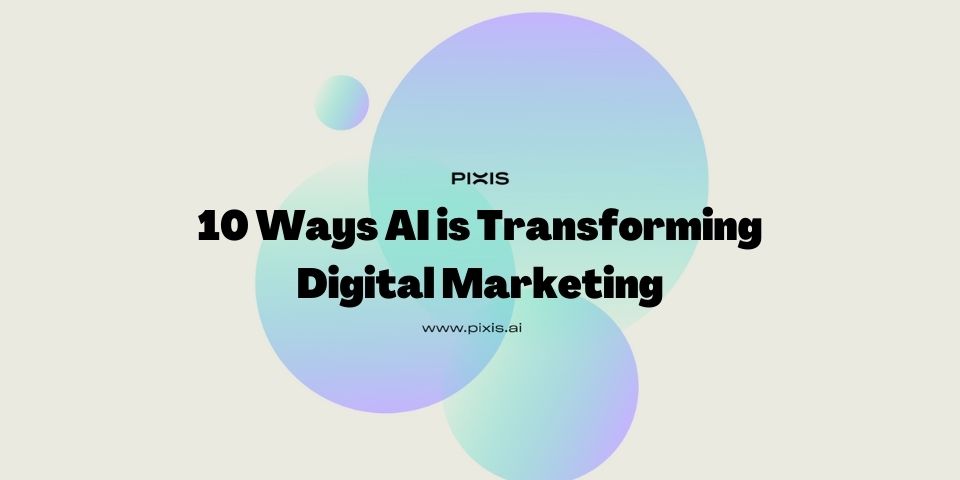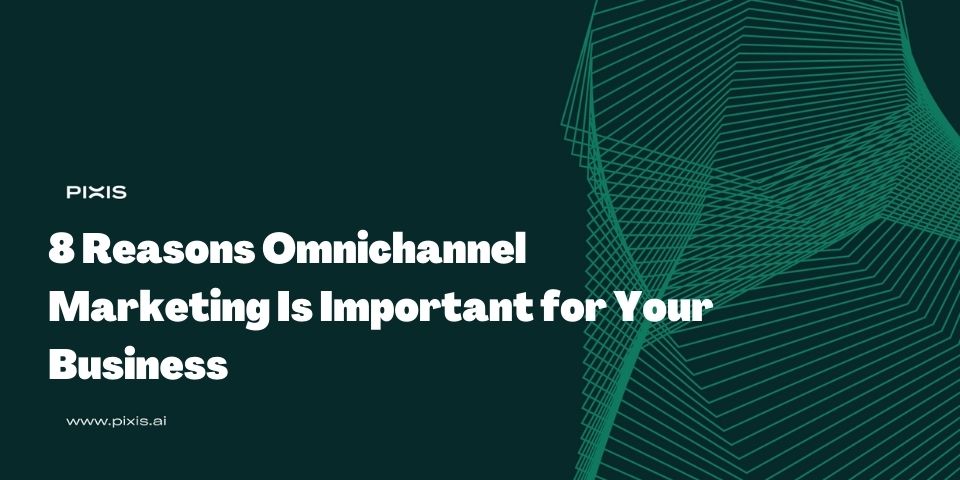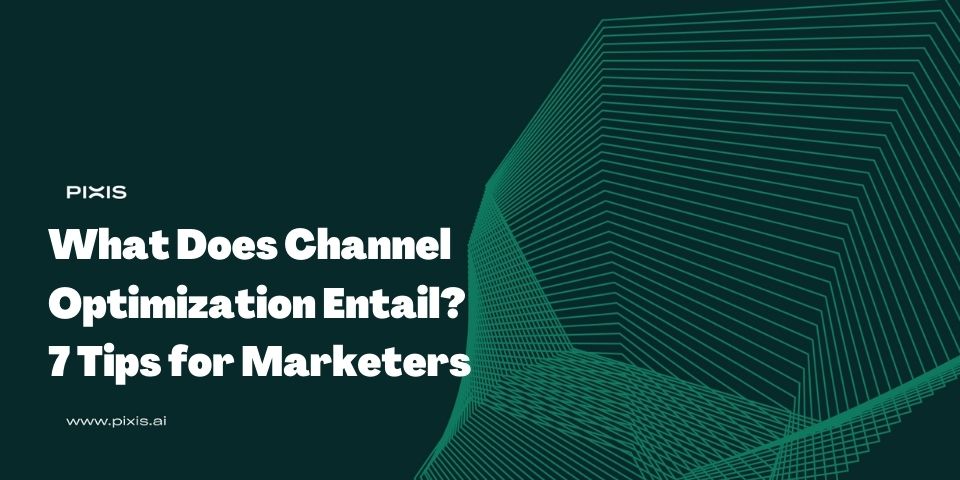The 12 Best AI Marketing Companies in 2025
AI is reshaping marketing in ways that go beyond simple automation. Brands are using it to uncover deeper insights about their audiences, adjust strategies in real-time, and improve overall performance. What once required hours of manual analysis can now be done in seconds. As the technology evolves, AI marketing companies are finding new ways to make everything from customer engagement to ad targeting more effective.
How Top AI Marketing Companies Are Transforming Marketing in 2025
Marketing departments worldwide use AI to support everything from content creation to performance analysis. Here are the main applications of AI that marketing teams rely on today:
Predictive Analytics
Predictive analytics uses historical data to forecast future trends, customer behaviors, and campaign outcomes. AI marketing companies offer these analytics to accurately predict future customer actions.
That is important because by understanding consumer behavior through predictive models, marketers can anticipate needs and tailor their strategies accordingly.
AI Content Creation
AI tools, including those for AI ad copy, generate text content and create personalized visual assets tailored to specific audience segments. These tools can analyze top-performing content across platforms and recommend optimizations for headlines, imagery, and messaging that resonate with target audiences.
Chatbots and Conversational AI
Conversational AI is addressing evolving customer expectations for 24/7 availability and immediate responses. These AI assistants improve customer experience through:
- Providing instant answers and eliminating wait times
- Offering round-the-clock support
- Improving query routing to appropriate departments
- Creating consistent experiences across touchpoints
- Engaging customers through conversational ads
Programmatic Advertising and Automated Marketing
Machine learning continuously refines audience segments by analyzing real-time user behavior, such as browsing history, purchase intent, engagement patterns, and contextual signals. By dynamically adjusting audience profiles, AI serves ads to consumers at the optimal moment—whether they’re actively searching for a product, engaging with relevant content, or showing signs of high purchase intent.
AI-driven algorithms also automate budget allocation by analyzing key performance indicators (KPIs) like conversion rates, click-through rates, and customer lifetime value across multiple channels. Instead of manually adjusting bids and budgets, AI distributes ad spend to the highest-performing platforms, shifting between social media, search, display, and connected TV to capture audiences where they are most likely to convert. This cross-platform marketing strategy maximizes return on ad spend (ROAS) by reducing wasted impressions and making ads more relevant.
The Best AI Marketing Companies in 2025
Several companies have emerged as leaders in AI marketing by creating innovative solutions that help marketers deliver more relevant campaigns.
1. Pixis AI
Pixis AI provides marketers with codeless AI tools that simplify media buying, creative optimization, and audience targeting.
Instead of manually adjusting campaigns, brands can use Pixis to analyze vast amounts of data and refine their ad placements across different channels. The platform includes several AI marketing analytics capabilities, including AdVance, which helps identify high-converting audience segments and adjusts bidding and budget allocation, and AdRoom, which generates ad variations based on performance data.
B2C marketers benefit by reducing wasted ad spend, scaling campaigns efficiently, and improving customer acquisition efforts without relying on complex AI coding or external data scientists.
2. Google
Google remains a powerhouse in AI-driven marketing, offering a robust suite of tools that help B2C brands reach the right audiences with precision and scale. Through platforms like Google Ads and Performance Max, marketers can tap into advanced machine learning to automate bidding, optimize creative across formats, and identify high-converting audience segments in real time.
Google’s AI analyzes vast volumes of search, browsing, and purchase behavior to deliver highly personalized ad experiences across Search, YouTube, Display, and Shopping. For B2C companies, this means less guesswork and better media spend, resulting in smarter targeting, higher ROI, and continuous campaign improvement without manual intervention.
3. Meta
Meta has cemented its position as a leading AI marketing company by helping B2C brands connect with customers through highly personalized, performance-driven campaigns across Facebook, Instagram, and Messenger. Its AI-powered Advantage+ suite uses machine learning to automate everything from creative testing to audience targeting and budget allocation—allowing marketers to launch campaigns faster and scale them more efficiently. Meta’s algorithms continuously learn from user behavior across its platforms, optimizing delivery in real time to drive conversions, engagement, or in-store visits based on campaign goals. For B2C companies, Meta’s AI capabilities translate into hyper-relevant ads, lower acquisition costs, and deeper insights into what drives customer action at each stage of the funnel.
4. Appier
Appier’s AI solutions predict consumer behavior and tailor marketing efforts accordingly. Its tools analyze browsing habits, purchase history, and interactions to help brands refine their messaging. Appier allows brands to anticipate demand and deliver relevant offers before a customer searches for a product. B2C businesses, particularly in ecommerce and retail, use Appier to improve product recommendations and reduce cart abandonment.
5. Pecan AI
Pecan AI specializes in predictive analytics for marketers who want deeper insights into customer behavior. It helps brands identify patterns in purchasing, retention, and churn without needing data science expertise. Marketers upload their raw data, and Pecan’s machine learning models automatically build forecasts, predicting which customers are likely to buy again, which ones might drop off, and how pricing changes affect conversion rates.
B2C companies use Pecan AI to optimize promotions and improve audience segmentation without sifting through complex spreadsheets.
6. Heuritech
Fashion and luxury brands turn to Heuritech for its AI-powered trend forecasting. The platform analyzes millions of social media images and videos to detect emerging fashion styles and patterns before they become mainstream. This allows brands to adjust inventory, plan seasonal collections, and refine their marketing messaging based on actual shifts in consumer preferences.
B2C marketers can tap into real-time visual trends to make smarter merchandising and marketing decisions.
7. Jasper.ai
Jasper.ai is an AI-powered content creation tool designed for brands that need high-quality copy, ad creatives, and marketing emails at scale.
Marketers can input key details about their campaign and Jasper generates multiple variations optimized for engagement. The platform is useful for social media, blog writing, and personalized ad copy. Jasper integrates with marketing automation platforms, maintaining a consistent brand voice across all customer touchpoints.
8. Synthesia
Synthesia transforms how brands create video content by replacing traditional film production with AI-generated avatars and voiceovers. Marketers upload a script, select a digital spokesperson, and generate a professional-quality video in minutes. This is especially valuable for B2C companies running product demos, customer onboarding videos, and localized ads without hiring actors or production crews.
Synthesia supports multiple languages, so brands can quickly scale their video marketing efforts across different regions.
9. AdCreative.ai
AdCreative.ai automates advertisement design and optimization.
The AI evaluates past campaign performance to determine which visuals and messaging styles lead to better conversions. It then generates multiple ad variations for social media, display networks, and ecommerce platforms. Marketers can quickly produce data-backed ad creatives that align with their target audience’s preferences. B2C businesses use AdCreative.ai to test and iterate on ad designs more efficiently than traditional A/B testing.
10. Breeze by HubSpot
Breeze improves marketing automation by helping brands streamline content creation, SEO strategy, and customer journey personalization.
HubSpot’s AI model adapts messaging sequences based on customer interactions and can trigger a personalized discount offer if a user frequently visits a product page but doesn’t buy. For B2C companies, this means more intelligent email campaigns, dynamic website experiences, and automated follow-ups that feel personal.
11. HeyGen
HeyGen helps brands create personalized video content at scale. Unlike Synthesia, which focuses on AI avatars, HeyGen specializes in dynamic video editing, allowing brands to directly insert personalized elements like a customer’s name, location, or product preferences into videos. This is useful for B2C marketers running email campaigns, loyalty programs, and personalized ad sequences.
12. aix
Aix is a Japanese AI-driven ad tech company that leverages complex data and AI-based audience segmentation. The platform optimizes ad targeting based on behavioral data to reach the most relevant consumers at the right time. It is useful for B2C brands focused on retargeting, customer acquisition, and programmatic ad buying in Japanese and Korean markets. It offers an alternative to traditional digital marketing agencies by using machine learning to optimize campaigns automatically.
How To Choose the Right AI Marketing Partner
Consider these factors while choosing the best AI marketing partner to make the most out of your investment.
1. Define Your Marketing Objectives
Before evaluating potential partners, establish your goals and expectations. Assess past campaigns to identify what worked and what didn’t, then outline how AI can improve your results.
One useful approach is to categorize current performance gaps or areas for improvement, such as:
- Targeting and segmentation
- Campaign governance and optimization
- Creative generation workflows & experimentation
Once you have an idea of where the gaps may be, set meaningful KPIs to evaluate the success of AI implementation.
2. Assess the Track Record of Top AI Marketing Companies
A strong AI marketing company should have a history of delivering tangible results for B2C brands. Look for case studies where they’ve helped businesses grow (like a boutique skincare brand that saw a 30% increase in online sales through AI-powered personalized ads or a restaurant chain that doubled its customer engagement with AI.)
Read customer reviews on platforms like G2 and Trustpilot to see real feedback. Do users praise the tool’s ability to drive revenue and improve targeting, or are there complaints about poor support and ineffective automation? Testimonials provide insight beyond marketing claims, revealing actual performance and customer satisfaction.
3. Confirm Integration Capabilities
Your AI marketing tool should work effortlessly with the systems you already use. Make sure it connects smoothly with your CRM, email platform, analytics tools, and ecommerce software so you’re not stuck with frustrating workarounds. The easier it integrates, the less time you’ll spend dealing with technical headaches.
Look for companies that provide clear integration guides, responsive support, and a hassle-free setup process.
4. Appraise Flexibility and Scalability
Your AI marketing partner should grow with your business, not hold it back. As your customer base expands and campaigns become more complex, your AI tool should handle larger data volumes and more advanced marketing tasks without slowing down.
Look for platforms that offer tiered pricing or modular features, allowing you to start small and scale up as needed. Can it support seasonal spikes in traffic, like holiday promotions for an online clothing store or a sudden viral moment for a beauty brand?
5. Consider Support Services That Companies Provide
Choose a provider that offers strong support and comprehensive training. Guides, tutorials, and live support can significantly shorten the learning curve and help your team maximize the tool’s potential.
Before deciding, ask about onboarding processes, ongoing support, and available training materials. Will you have access to dedicated account managers? Is there a knowledge base or live training sessions? The more support a provider offers, the smoother your integration and long-term success will be.
6. Review Ethical AI Guidelines
A trustworthy AI marketing partner should have clear policies on data privacy, bias mitigation, and algorithmic transparency. Look for companies that comply with GDPR and CCPA regulations, outline how customer data is used, and actively work to prevent bias in their AI models.
7. Evaluate Security, Privacy, and Compliance Standards
AI marketing tools process large volumes of customer data, so choosing a partner with robust security and compliance practices is critical. Look for platforms that implement enterprise-grade security protocols, including encryption, access controls, and regular audits to protect sensitive information.
Your AI partner should also comply with major data protection regulations like GDPR, CCPA, and HIPAA (if applicable to your industry). This includes offering clear consent mechanisms, honoring user data rights, and confirming that data is stored and processed securely. Ask whether the company undergoes third-party compliance assessments or holds certifications like SOC 2 or ISO/IEC 27001.
Additionally, assess how transparent the platform is about its data practices. Can you see what data is collected, how it’s used, and whether it’s shared with third parties? Prioritizing vendors with transparent policies and strong compliance infrastructure can help protect customers and build trust.
Level Up Your Marketing with Pixis
AI is improving marketing, making it smarter and more efficient. The top AI marketing companies in 2025 are leading this shift with innovations in predictive analytics, AI-powered content creation, and conversational AI.
Among them, Pixis stands out with our codeless AI infrastructure, which helps businesses easily optimize campaigns, create engaging content, and make smarter decisions without needing deep technical skills.
As marketing keeps evolving, having the right AI partner can make all the difference. See how Pixis can help you level up your marketing today and book a demo today.







